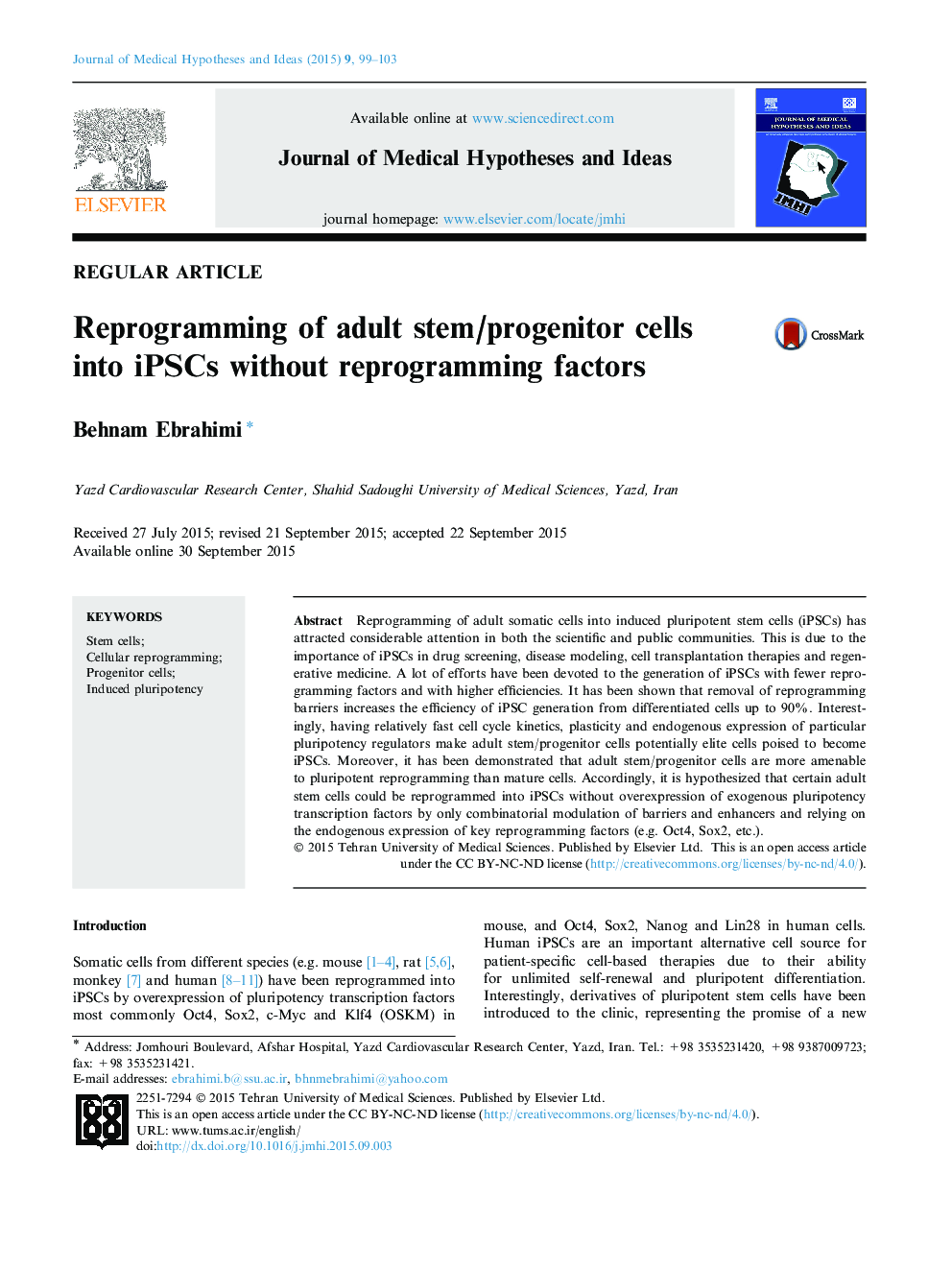| Article ID | Journal | Published Year | Pages | File Type |
|---|---|---|---|---|
| 3482953 | Journal of Medical Hypotheses and Ideas | 2015 | 5 Pages |
•Removal of reprogramming barriers can improve the efficiency of pluripotent reprogramming.•Adult stem cells are more amenable to efficient reprogramming to pluripotency than terminally differentiated cells.•Adult stem cells might be reprogrammed into iPSCs without overexpression of exogenous pluripotency transcription factors.
Reprogramming of adult somatic cells into induced pluripotent stem cells (iPSCs) has attracted considerable attention in both the scientific and public communities. This is due to the importance of iPSCs in drug screening, disease modeling, cell transplantation therapies and regenerative medicine. A lot of efforts have been devoted to the generation of iPSCs with fewer reprogramming factors and with higher efficiencies. It has been shown that removal of reprogramming barriers increases the efficiency of iPSC generation from differentiated cells up to 90%. Interestingly, having relatively fast cell cycle kinetics, plasticity and endogenous expression of particular pluripotency regulators make adult stem/progenitor cells potentially elite cells poised to become iPSCs. Moreover, it has been demonstrated that adult stem/progenitor cells are more amenable to pluripotent reprogramming than mature cells. Accordingly, it is hypothesized that certain adult stem cells could be reprogrammed into iPSCs without overexpression of exogenous pluripotency transcription factors by only combinatorial modulation of barriers and enhancers and relying on the endogenous expression of key reprogramming factors (e.g. Oct4, Sox2, etc.).
Graphical abstractFigure optionsDownload full-size imageDownload as PowerPoint slide
